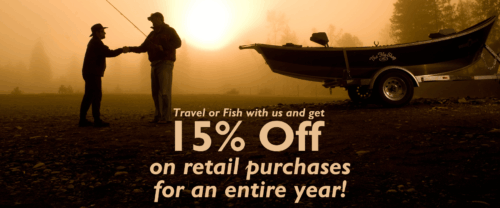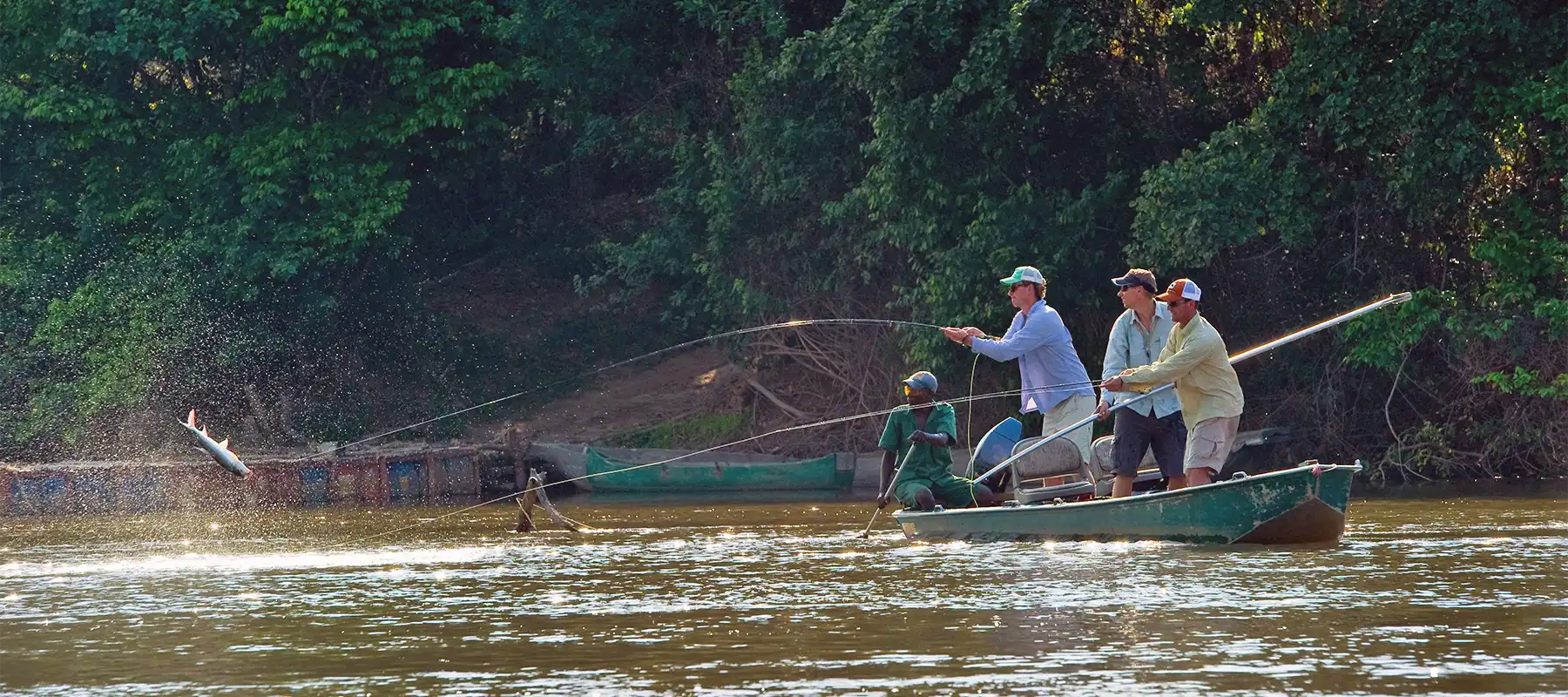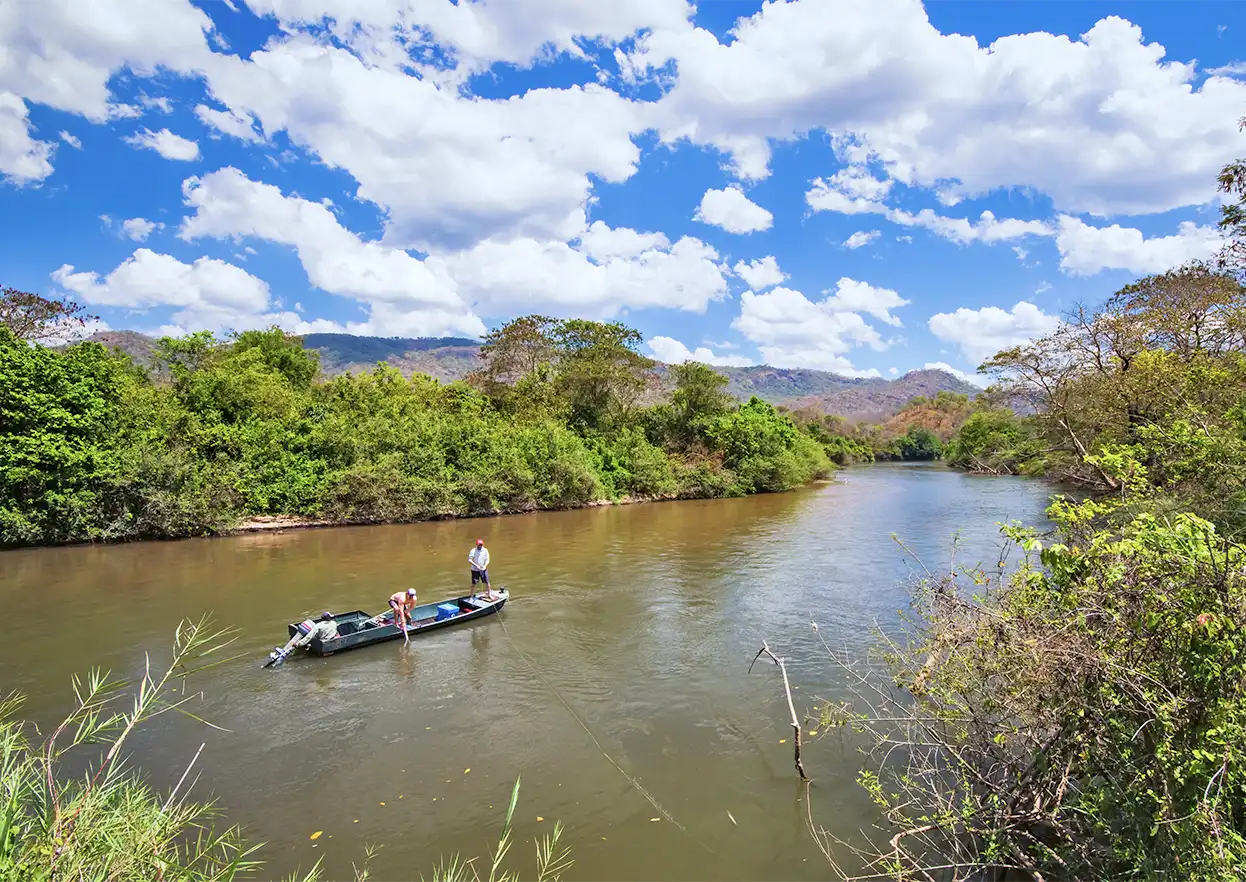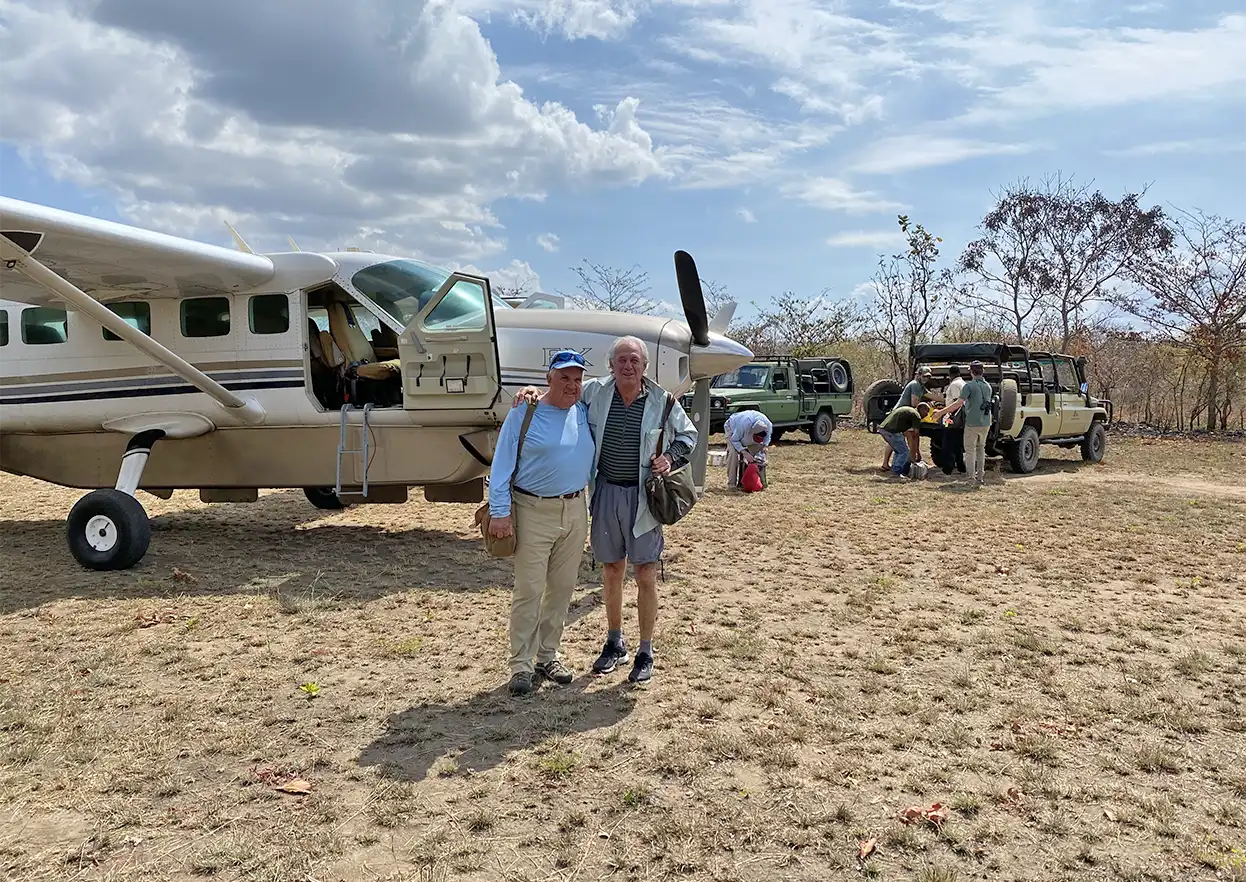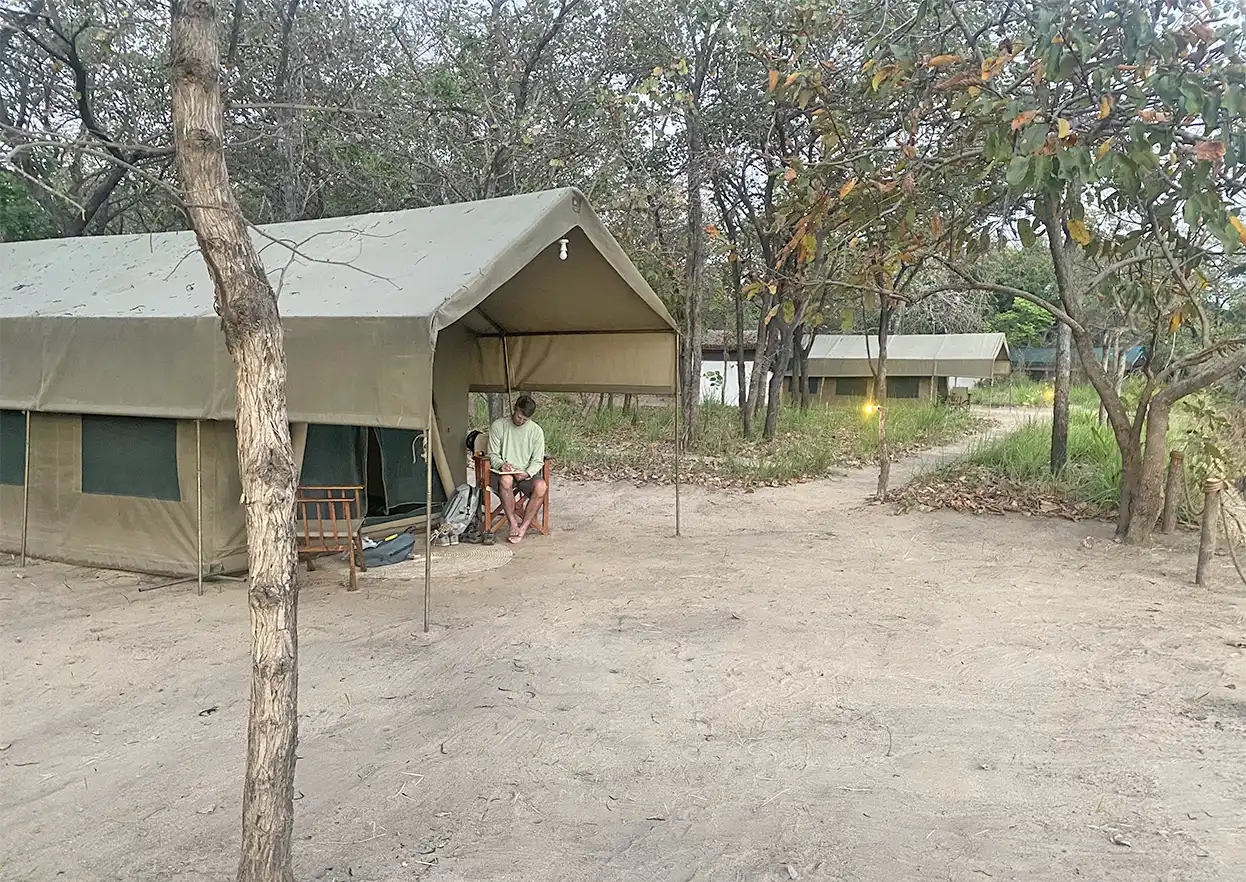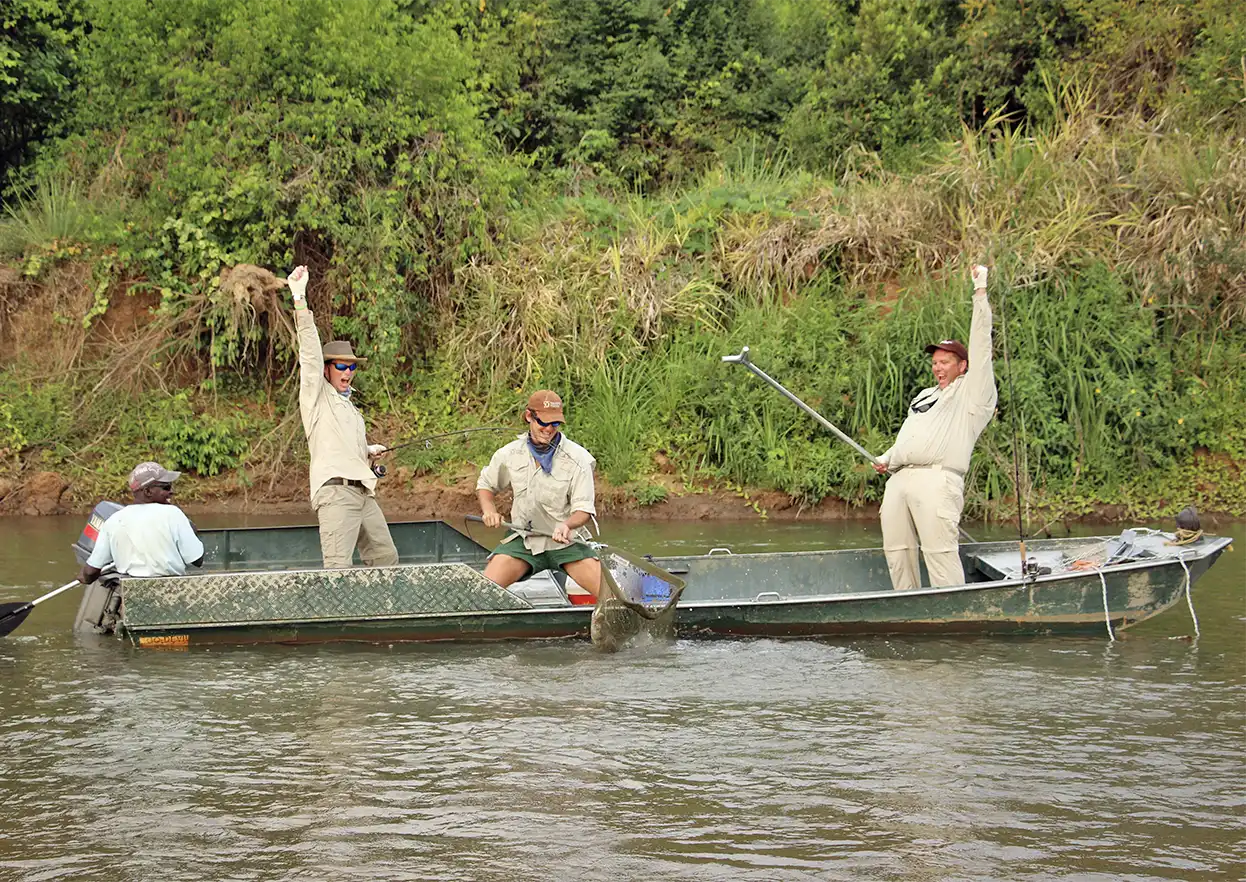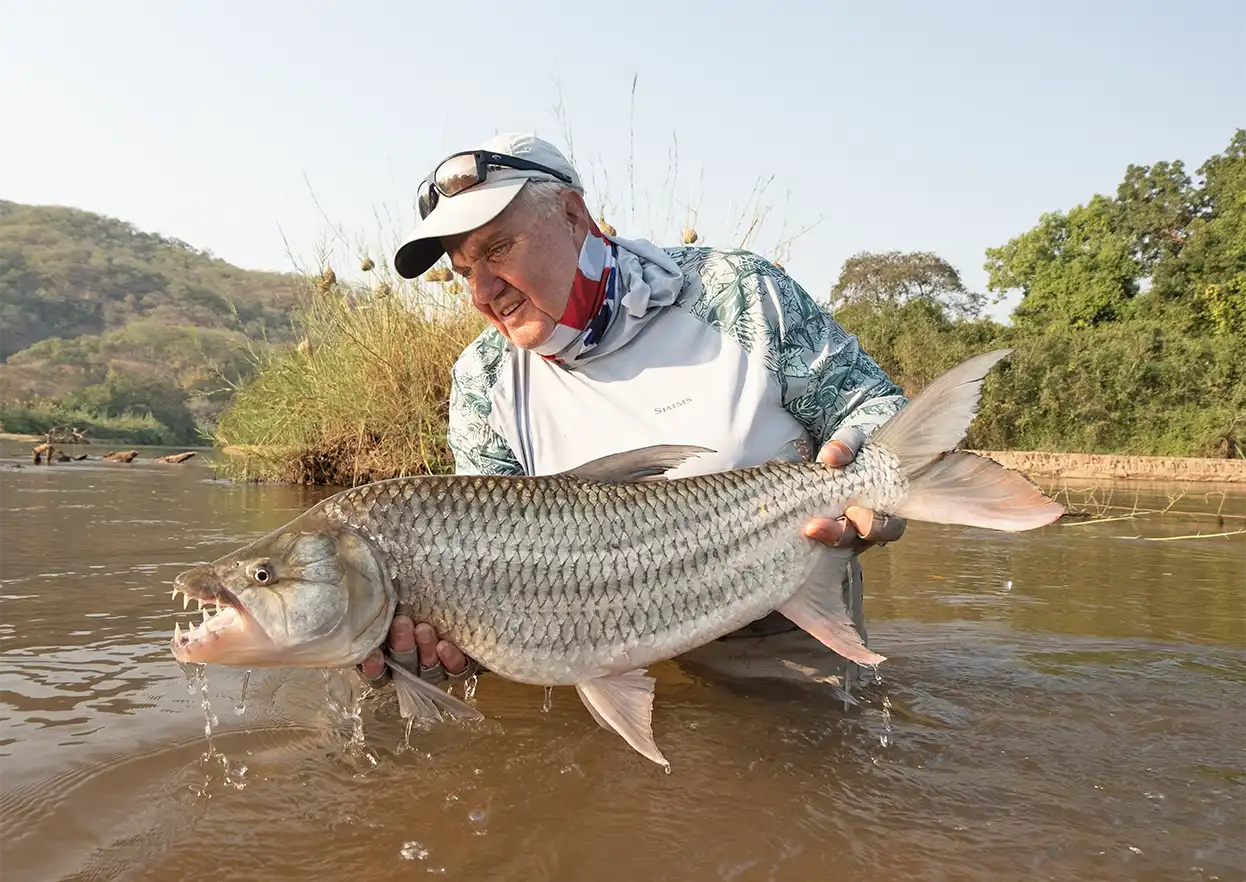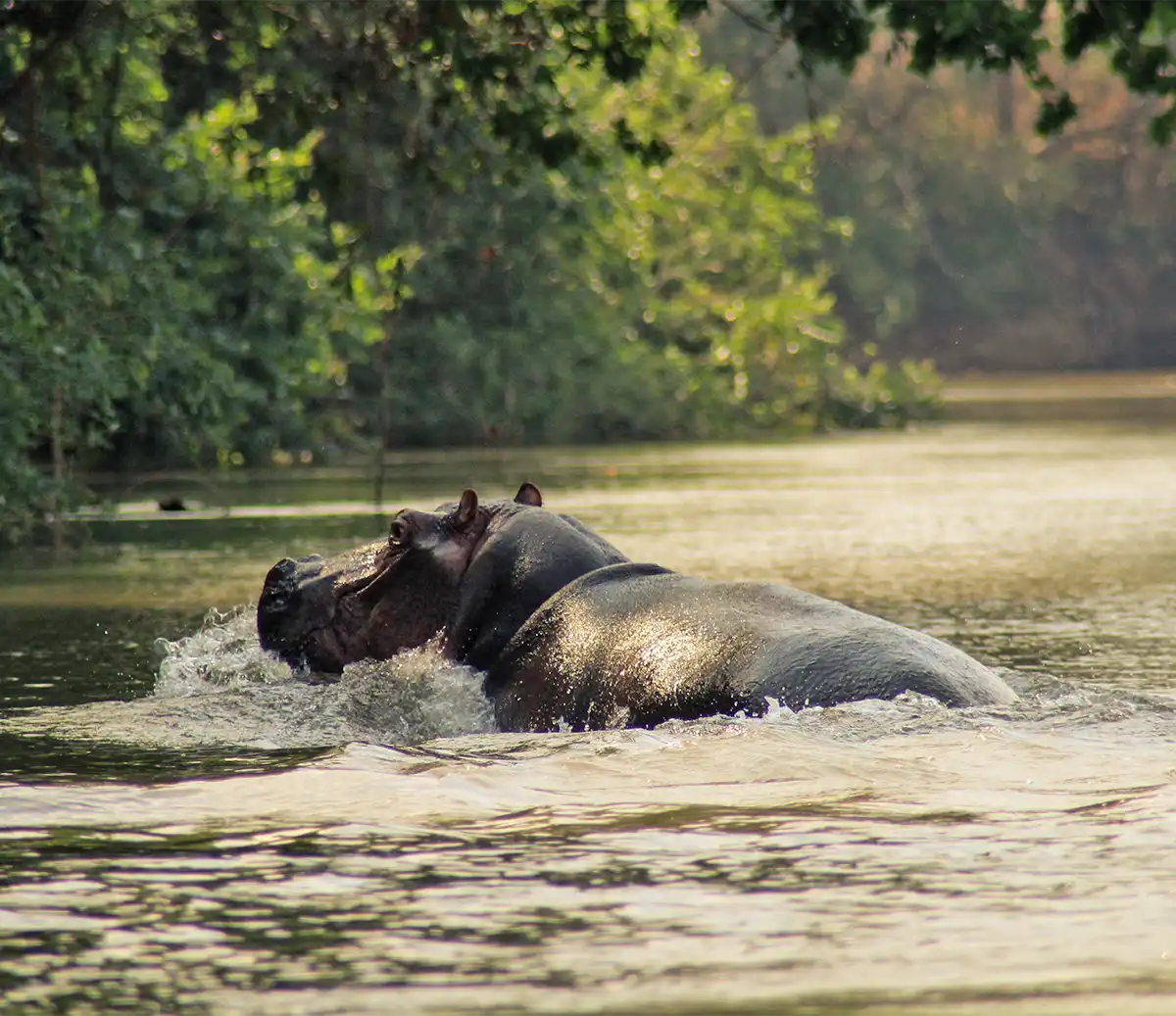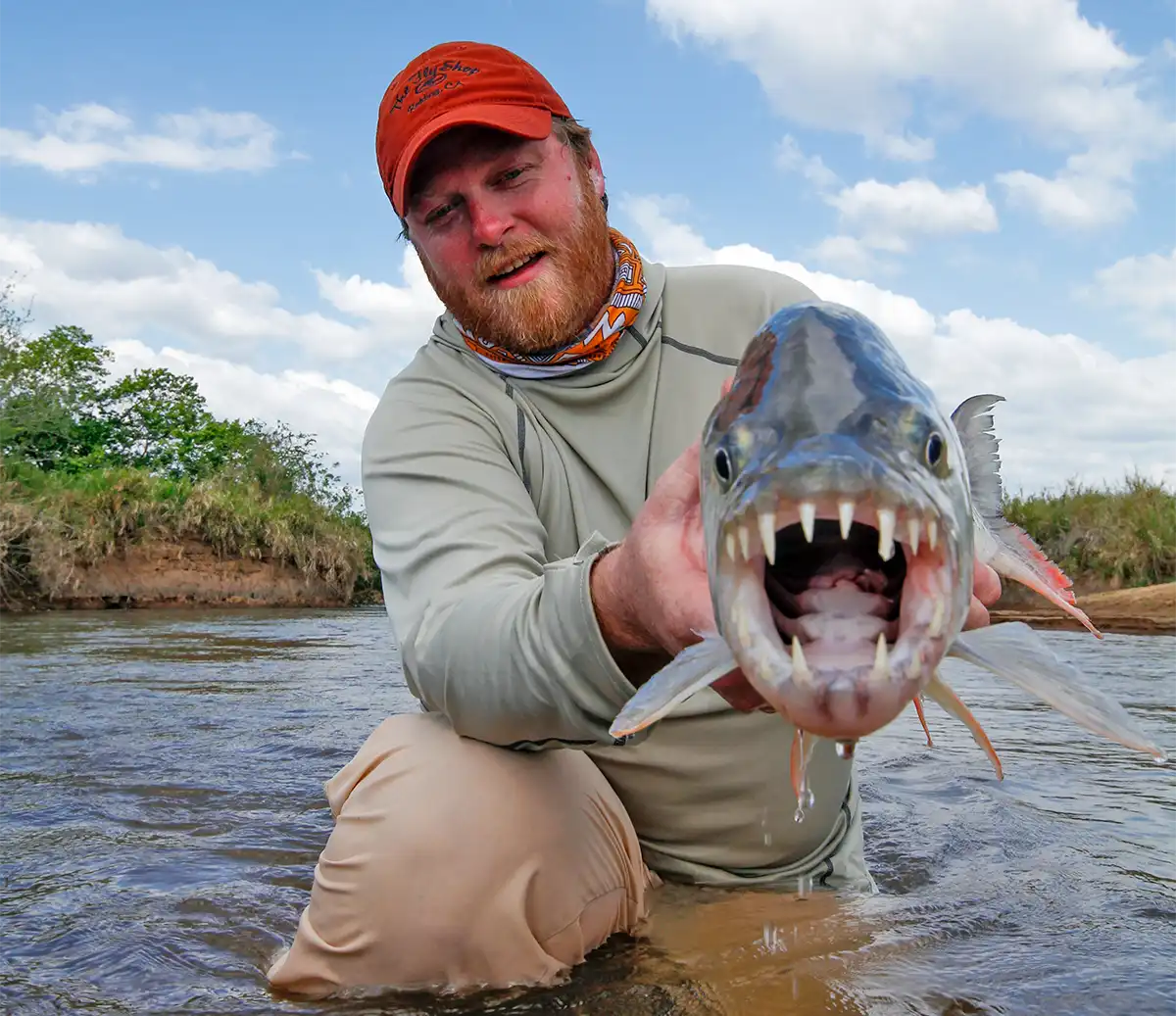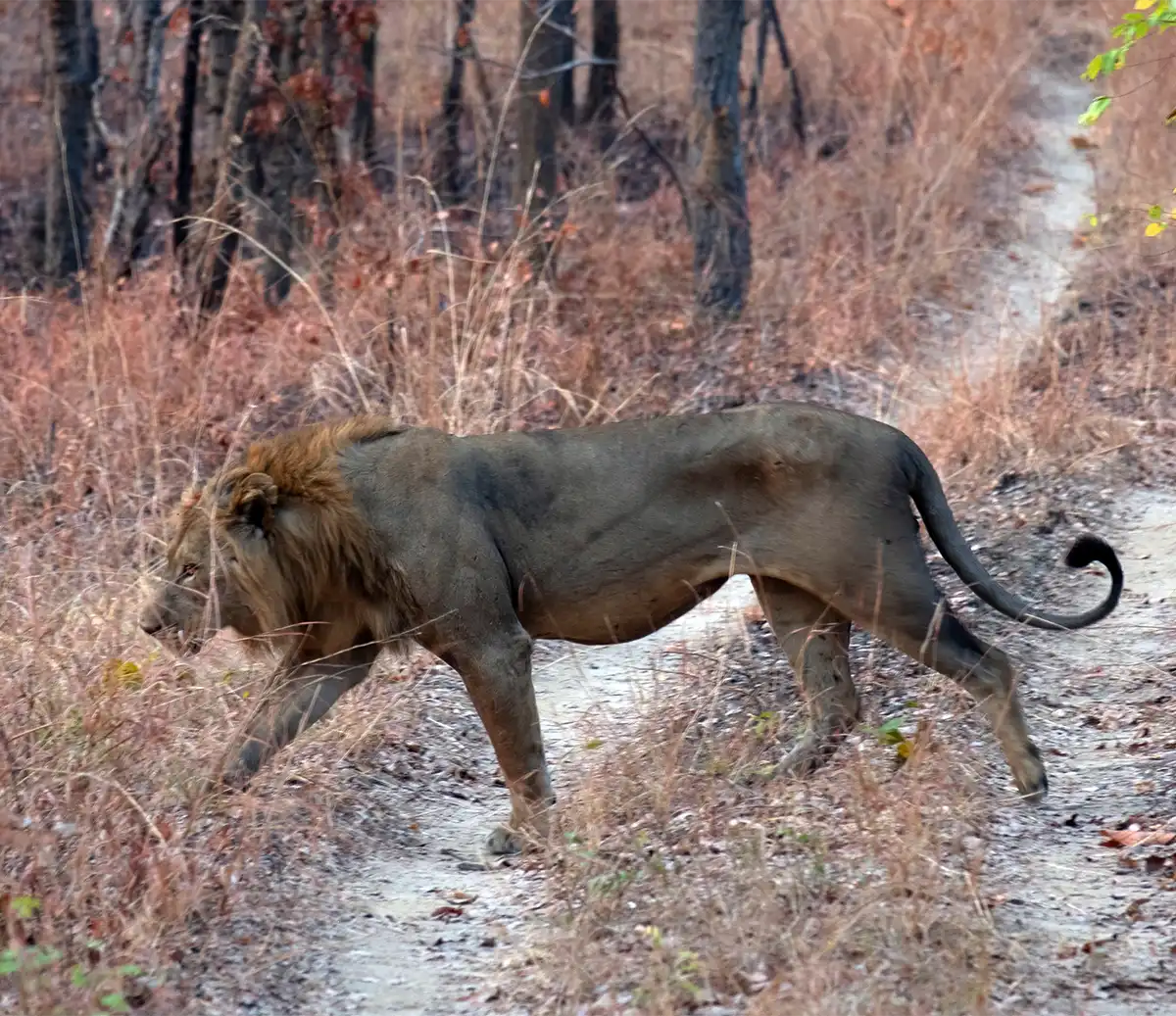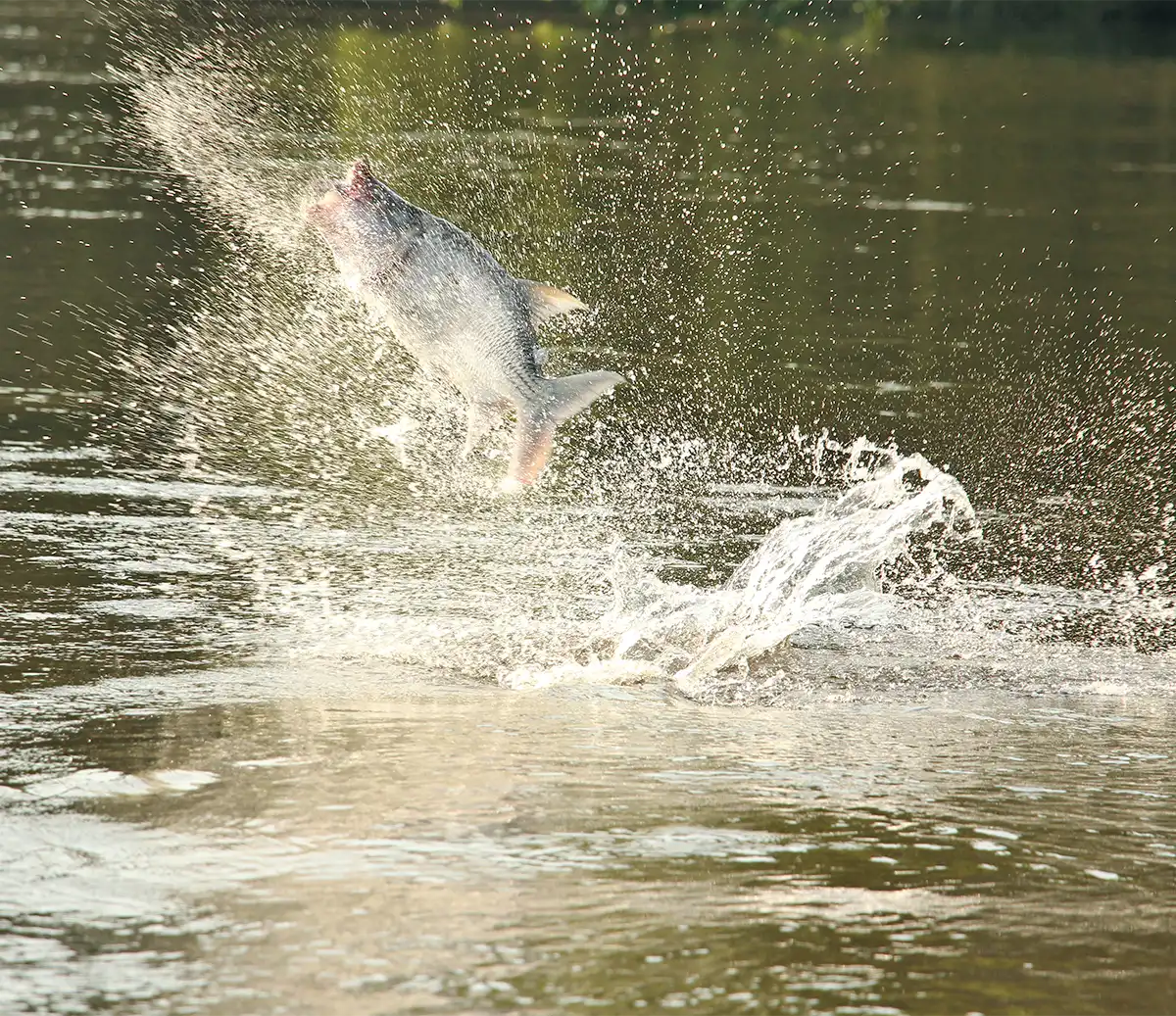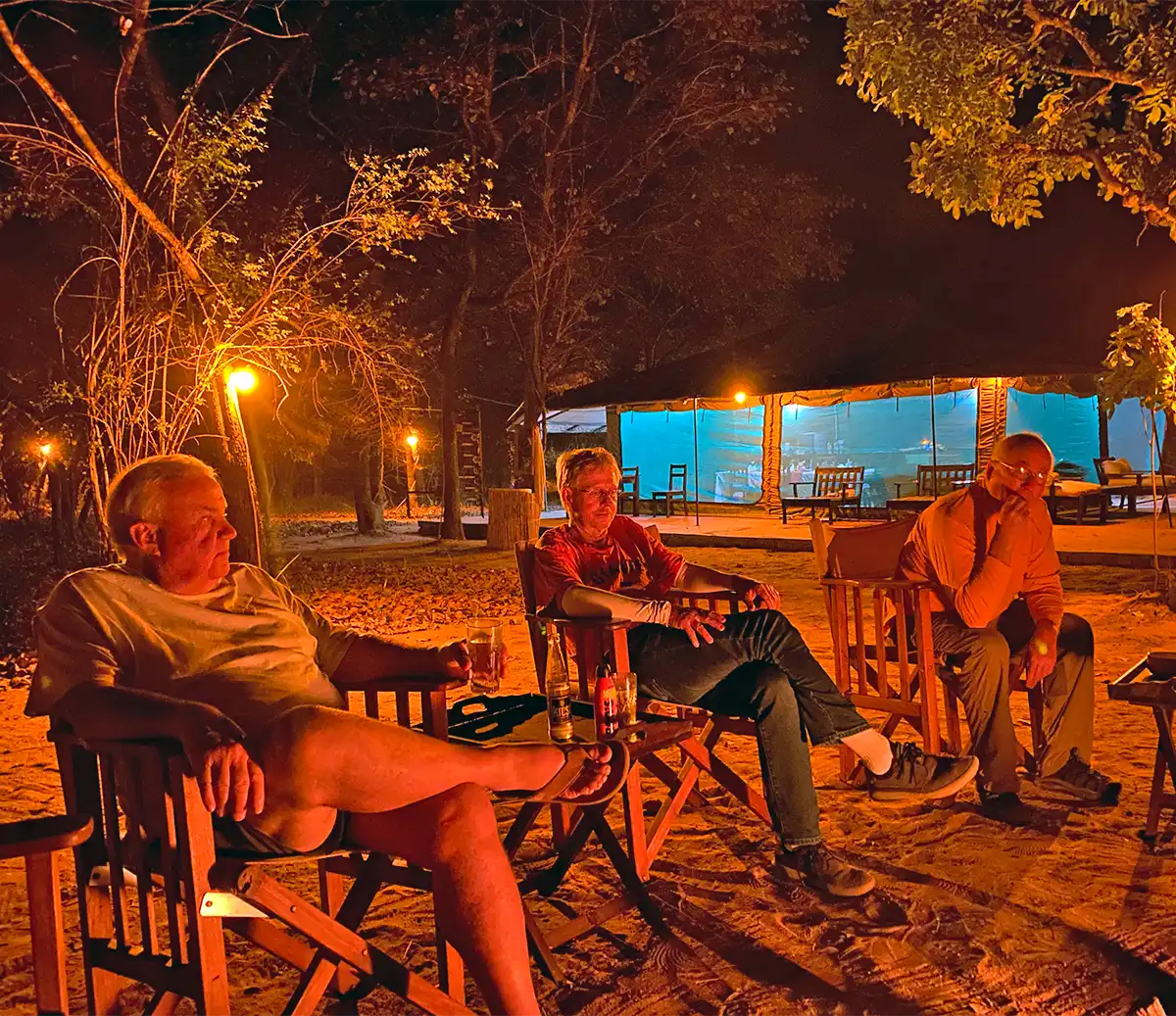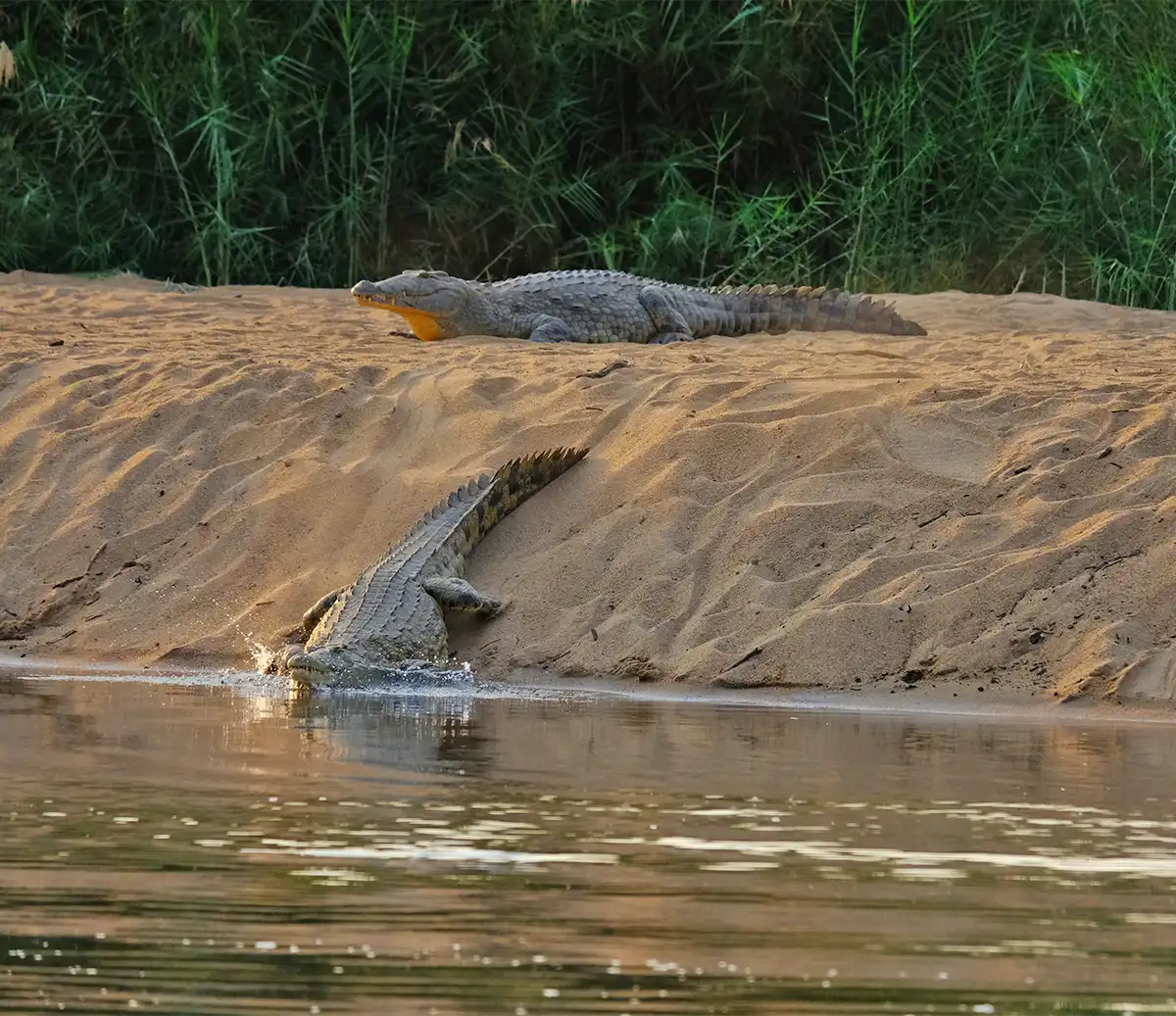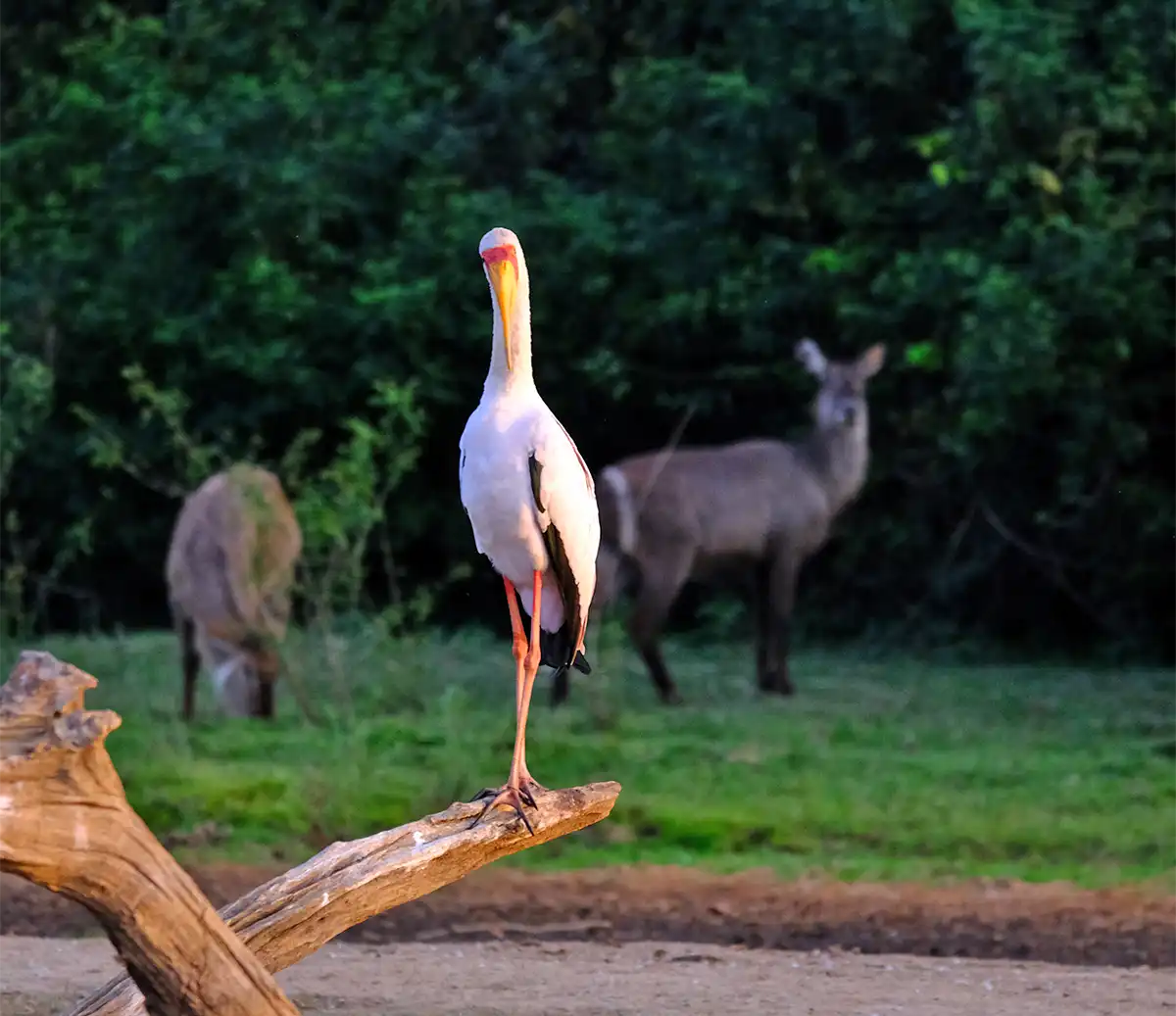Dhalla Camp (on the Mnyera River) and Samaki Camp (on the Ruhudji River) offer the adventurous fly fisherman a unique African fly fishing safari. Tented bush camps erected each season, ensure that the African safari experience is as much a part of this trip as the trophy tigers you can expect to encounter. Camps are not luxury, and due to the seasonal floods are built from scratch each season. They are practical and comfortable and allow guests and guides access to these amazing rivers.
Dhalla Camp (Mnyera River): Dhalla Camp, comprising 4 safari tents and a tent mess and lounge area, is the base for your stay on the Mnyera River. The camp consists of 4 safari tents with twin or double configurations. All tents have a view overlooking the river. All tents are en suite, offering a shower and toilet. Fall asleep to the sound of a rasping leopard, and wake up with the rising sun and splashes of feeding tigerfish, all in the privacy of your tent. Meals are enjoyed in the main central camp area under tented roof overlooking the river. This area contains a small library, lounges, and electric points for charging cameras and laptops.
Samaki Camp (Ruhudji River): This rustic bush camp is your base on the Ruhudji River. It, too, is erected each season and is the smaller sister of Dhalla Camp. Its location on the banks of the Ruhudji River allows access to these productive waters. Samaki camp comprises of traditional Safari tents, all en suite, with twin or double configurations. The mess area is situated in the shade of the riverside forest, although most meals are enjoyed alfresco, under the stars on a beautiful sandbank in front of the camp.
Communication: There is limited cell reception at the main camp. Guests will require international roaming to be activated. There is no internet available in camp. There is a camp sat phone for emergencies. There is NO Wi-Fi in camp.
Electricity: Both camps runs off a generator and inverter system. Power is on each night from 5:00 pm until 10:00 pm and again each morning from 5:00 am until you depart for fishing. You can charge tablets and cameras during this time in the main living area or your tent. Tanzania power sockets are Type G (three square pins). There are a range of travel adapters in camp, but bring your own international adapter kit to make sure you are covered.
Laundry Services: Laundry can be done on a daily basis. Clothes sometimes take longer to dry due to the humidity. No extra charge.
Meals: All meals are prepared by the camp chef. Fresh produce is flown into camp each week with the group. Due to the close relationship with the nearby hunting camp, guests can enjoy fresh venison during their stay. Breakfast is normally an early affair with tea, coffee, a standard American breakfast (eggs, toast, meat, juice), cereal and fruit taken before getting onto the boat. We break for a mid-morning snack on the river banks art around 10:00 am. Lunch is taken on the river banks in a shaded spot selected by your guides. Dinners are served in the mess area, or alfresco under the African night sky. Food is wholesome camp cuisine, all prepared in a bush kitchen.
Drinks: Water and soft drinks are included in the package price. Limited beer is also included (3 x 340ml bottle per person per day). Any additional beer will be charged at US$5 per bottle. Limited wine is included at dinners (2 bottles per night). For anything more please bring your own wine and preferred spirits with you from Duty Free.
Wildlife: Game species including puku, warthog, hartebeest, zebra, eland, and bushbuck amongst many. The bird life is exceptional with many rare and endemic species found in the area. Pels Fishing Owl, along with Palmnut Vultures, Narina Trogans, Broad Billed Roller, African Fin Foot, and white backed night heron all make this riverine environment their home. Bring your binoculars and guide books!
